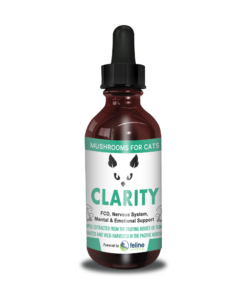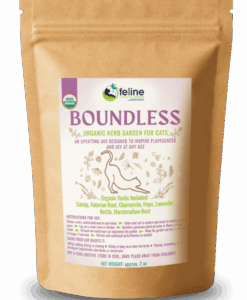When your cat is constipated it’s no fun for them – or for you. We have a kitty that is prone to constipation when he is shedding his very dense undercoat. During certain seasons when a cat is blowing his coat, the ingested hair can clog up the colon.
It’s important that we pay attention to our cats litter habits to make sure everything is flowing correctly – we want to see our kitties poop at least once every day. If you have multiple cats, this can take some serious vigilance – as simply scooping the litter won’t reveal who is pooping and who isn’t. We give ourselves a little extra time after feeding them breakfast to watch them each do their business. TMI?
Anyway, here are 4 tips that we can do proactively to avoid the painful condition of constipation in cats.
Tips To Keep Your Cat From Getting Constipated
- Feed a moisture rich diet. Cats that eat only dry food will be more prone to constipation because they need the moisture to keep things moving. In addition, kibble is full of carbohydrates and our cats aren’t designed to digest carbs – they can actually get stuck in the digestive tract and then your cat is constipated. Wet or raw food is best to avoid constipation.
- Add psyllium husk powder or coconut fiber to the diet. This can help push through the more firm bowels and keep that poop flowing.
- Give your kitty some coconut oil. This is our favorite for Mr. Bittles because he loves it. I just put some on a spoon or my finger and he licks it right off! This helps lubricate the colon so those hairs can better pass through his system.
- Digestive enzymes added to moist food. Digestive enzymes basically go into our cats bodies and tell the nutrients in the food where to go for best use. They also help break down those ingredients. Adding this simple solution to your cat’s food can really help if your kitty is prone to constipation like ours is.
What do you use to help your cat’s constipation issues? Comment below and let us know!
Digestive Enzymes for Cats




Recent Comments